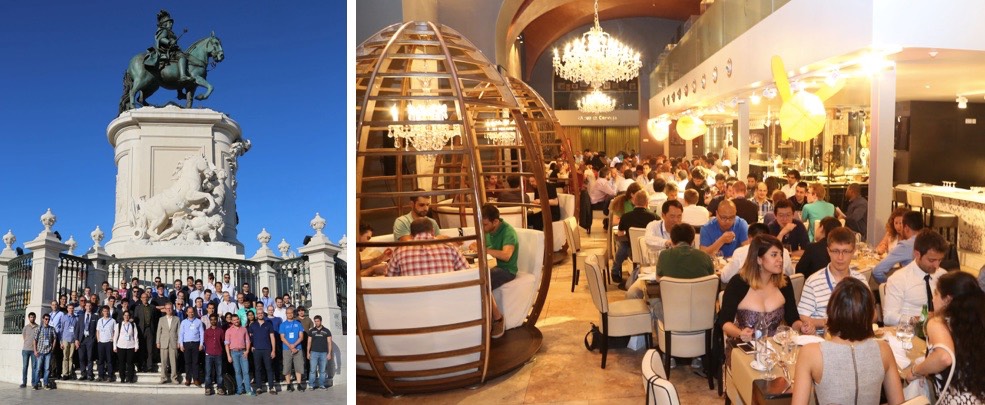PRIME 2016 Post-Conference Report
The 12th Conference on PhD Research in Microelectronics and Electronics (PRIME 2016) took place at Instituto Superior Técnico (IST) in Lisbon, Portugal on June 27-30m 2016. The conference was co-located with International Conference on Synthesis, Modeling, Analysis and Simulation Methods and Applications to Circuit Design (SMACD 2016) both technically sponsored by the IEEE Circuits and systems society (CASS). The result was a huge success with a number of attendees, close to 200, and presented works, over 150 papers, larger than the typical numbers of the two conferences when organized separately. The 2016 edition of PRIME received a total of 150 submissions. A technical program committee from all across the world, with about 100 members, conducted the peer reviews of the papers selecting 107 top quality papers for presentation.
PRIME 2016 offered a multitude of opportunities for the attendees to gain knowledge and useful information about the hot topics in CAS, particularly, on the conference topics: Micro/Nanoelectronics; Semiconductors; Analog/Digital Signal Processing; Computer Aided Design; Analog/Digital/Mixed/RF IC Design; Integrated Power ICs; Sensors/Systems and MEMS; RF, Microwave and mm-wave Circuits; VLSI and SoC Applications; Visual Signal Processing; Energy Scavenging; Technical Trends & Challenges; Electronic Skin; and Flexible Electronics. Additionally, a Company Fair was promoted were the attendees had the opportunity to contact with industrial sponsors, such as, DIALOG Semiconductor, ON Semiconductor, CADENCE Academic Network and Springer, and, also academic EDA solutions such as AIDASoft. Finally, PRIME 2016 was honored by the presence of the IEEE CASS President Prof. Franco Maloberti.
The PRIME 2016 technical program included a pre-conference workshop presented by CADENCE Academic Network and 3 days of technical sessions with 3 sessions in parallel. The sessions were organized on the following topics: Data Converters; Oscillators, PLLs and DLLs; Modeling & Layout Techniques; IC Design; Biomedical Applications; Energy Harvesting; Memristors; Emerging Technologies and Applications; Power ICs; RF, Microwave and mm-wave Circuits; Amplifiers and Comparators; Sensors/Systems and MEMS; Digital Signal Processing. Besides the technical sessions 3 keynotes were given, 1 per day, by renown researchers: “Implantable and Wearable Microelectronic Devices to Improve Quality of Life for People with Disabilities” by Prof. Maysam Ghovanloo; “Lab-on-CMOS NMR Systems: Microelectronics meets Microfluidics” by Prof. Pu-In Mak; and “Sensor Interface Design in Nanometer CMOS: Time to the Rescue” by Prof. Georges Gielen. Finally, the technical program ended with and award ceremony where the best ranked papers were distinguished with Gold Leaf, Silver Leaf and Bronze Leaf Awards as traditional in PRIME.
The social events include a welcome reception, at the Noble hall from IST with the presence of the head, president, of the institution, and a conference dinner in one of the most emblematic Lisbon squares accompanied with Fado, a world heritage music genre, recognized by UNESCO as World Intangible Cultural Heritage, with origin in Portugal.
Photos from the PRIME 2016 can be found on its website: http://prime2016.lx.it.pt

Figure 1: The opening session at PRIME 2016 with the Prof. Nuno Horta, PRIME 2016 General Chair and Prof. Franco Maloberti, IEEE CASS President

Figure 2: The keynote speakers at PRIME 2016. Prof. Maysam Ghovanloo (left), Prof. Pui-In Mak (middle) and Prof. Georges Gielen (right)

Figure 3: Part of the attendees pose for a group photo at the PRIME 2016 (left); PRIME 2016 Gala Dinner (right)
Nuno Horta, Instituto Superior Técnico (Email: nuno.horta@lx.it.pt)